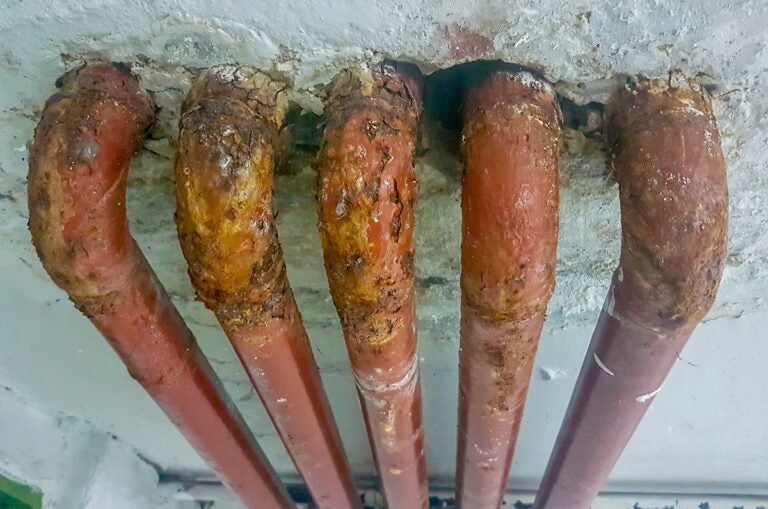Education
Advocates Demand Urgent Action Against Lead Poisoning in Delaware Schools

Concerns over childhood lead poisoning in Delaware have reached a boiling point, with advocates calling for immediate action to address dangerously high lead levels in schools and homes. During a panel discussion at the Wilmington Public Library on March 13, 2024, community leaders and health advocates voiced their frustration over the state’s slow response to this critical issue.
Amy Roe, a representative from Lead-Free Delaware, emphasized the severity of the situation, stating, “There is no safe level of lead in your blood without cognitive or health impacts.” The event, organized by the Newark branch of the NAACP, included officials from various organizations, including the City of Wilmington and the Christina School District. Attendees expressed dissatisfaction with the state’s lack of urgency in tackling lead exposure, which can lead to severe cognitive and behavioral issues in children.
Lead poisoning is a significant concern, particularly as studies reveal that elevated lead levels can impair a child’s intelligence and increase the risk of criminal behavior. Children are required to undergo lead testing at 12 and 24 months of age. Richard Williams, Vice President of the Newark NAACP, criticized the state’s approach, stating, “They just keep kicking the can down the road.”
The national standard for elevated blood lead levels is set at greater than or equal to 3.5 micrograms per deciliter, while Delaware’s threshold for shutting off water fountains is 7.5 parts per billion. This limit was adjusted following directives from the Environmental Protection Agency. Roe highlighted that her organization seeks lead-safe water in every school but lacks assurance from the state regarding this necessity.
Statewide Testing and Funding Challenges
The last significant water quality testing in Delaware schools occurred in 2023, following a previous flawed analysis in 2020, which was marred by improper sample collection. The results from 2023 revealed that lead levels exceeded the safety threshold at 149 sites in 49 schools. Despite this alarming data, the Delaware Department of Education announced that no further funding is available for ongoing testing, as the previous assessments were financed by federal grants.
A report released in November 2023 by the Delaware Division of Public Health indicated that 694 children aged 0 to 6 years exhibited elevated blood lead levels, representing 5.9% of those tested. The report did not include data for children older than six, raising concerns about the full extent of the issue. “Lead poisoning is a preventable occurrence but continues to be a significant environmental hazard for children in Delaware,” the report stated.
Legislation signed into law in 2021 mandates the Division of Public Health to provide annual reports on elevated blood lead levels, but no updates have been shared since 2023. WHYY News has sought comments from public health officials but has not received responses.
In 2023, the state allocated $3.8 million to a “Filter First Initiative,” aimed at assisting school districts in installing filters to remove lead from drinking water. Alison May, a spokesperson for the Delaware Department of Education, confirmed that funding was distributed to districts and charter schools for these mitigation efforts. However, Roe noted the lack of transparency regarding the implementation of the filters.
Legislative Efforts and Community Response
In 2022, Delaware legislation transferred the responsibility of testing school drinking water to the districts, which are now required to submit annual reports to various government bodies. Jeff Taschner, executive director of the Delaware State Education Association, described this legislation as a vital first step. “We’re hoping that, finally, by establishing a process and making it be reported, we’re going to start getting to the place we need to,” he remarked.
Participants at the panel also discussed the necessity of lead abatement in housing, particularly given that approximately 42% of Delaware residences were built before 1979, making them susceptible to lead exposure. Recent public health reports indicate that lead poisoning disproportionately affects low-income families residing in older, poorly maintained homes.
Legislation enacted this year mandates that landlords demonstrate their rental properties are free from lead paint within three years. This measure has faced resistance from landlords concerned about the financial burden of compliance. Donald Farrell, a tenants’ rights advocate, encouraged renters to utilize over-the-counter kits to test for lead, rather than relying solely on their landlords.
State Senator Marie Pinkney, the only lawmaker present at the panel, acknowledged the community’s frustrations. She co-sponsored the lead paint bill passed in June, emphasizing the need for continued advocacy. “There are actually real lobbying efforts against remediation,” she stated. “The way that you all are showing up is so important because we need those same voices lobbying in support of making sure that we’re saving people’s lives.”
As the issue of lead exposure continues to resonate within Delaware communities, advocates stress the importance of immediate actions to protect children’s health and well-being. The demand for transparency and effective solutions remains paramount in the ongoing fight against lead poisoning.
-

 Technology5 months ago
Technology5 months agoDiscover the Top 10 Calorie Counting Apps of 2025
-

 Health3 months ago
Health3 months agoBella Hadid Shares Health Update After Treatment for Lyme Disease
-

 Health3 months ago
Health3 months agoErin Bates Shares Recovery Update Following Sepsis Complications
-

 Technology4 months ago
Technology4 months agoDiscover How to Reverse Image Search Using ChatGPT Effortlessly
-

 Technology1 month ago
Technology1 month agoDiscover 2025’s Top GPUs for Exceptional 4K Gaming Performance
-

 Technology3 months ago
Technology3 months agoElectric Moto Influencer Surronster Arrested in Tijuana
-

 Technology5 months ago
Technology5 months agoMeta Initiates $60B AI Data Center Expansion, Starting in Ohio
-

 Technology5 months ago
Technology5 months agoRecovering a Suspended TikTok Account: A Step-by-Step Guide
-

 Health4 months ago
Health4 months agoTested: Rab Firewall Mountain Jacket Survives Harsh Conditions
-

 Lifestyle5 months ago
Lifestyle5 months agoBelton Family Reunites After Daughter Survives Hill Country Floods
-

 Health3 months ago
Health3 months agoAnalysts Project Stronger Growth for Apple’s iPhone 17 Lineup
-

 Technology4 months ago
Technology4 months agoHarmonic Launches AI Chatbot App to Transform Mathematical Reasoning





















